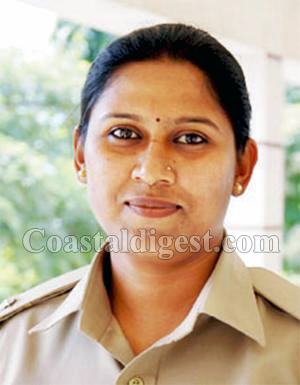Bengaluru, Feb 1: Facing public pressure and criticism from various quarters, Karnataka government today reinstated a senior woman police official after she was transferred allegedly at the behest of a state minister for putting his call on hold.
A video footage showing state Labour Minister P T Parameshwara Naik making a boastful claim for the shunting out of Deputy Superintendent of Police of Kudligi sub-division in Ballari district, Anupama Shenoy had gone viral and triggered a storm.
The claim by Naik, the district minister in charge, to party workers in Hadagali assembly constituency, had come as an embarrassment to the Congress-led state government as the video surfaced, just a few days after the minister rejected any role in the transfer as "far from the truth."
The order signed by Director General and Inspector General of Karnataka Police states that the (previous) order posting Shenoy to Indi Sub Division, Vijayapura district, on Official Duty (OOD) has been "withdrawn" with immediate effect.
It stated that Shenoy will continue to discharge her duties in Kudligi sub-division in Ballari district, the same position she held prior to her transfer, and asks the official concerned to submit a report about her reporting to the duty.
Earlier today, a group of women activists, rallying behind Shenoy, sought the intervention of President Pranab Mukherjee, Prime Minister Narendra Modi, National Women Commission Chairperson Lalitha Kumaramangalam, Congress President Sonia Gandhi and party Vice-President Rahul Gandhi in the issue.
Chief Minister Siddaramaiah had defended the abrupt transfer calling it an "administrative matter".
Home Minister and state Congress Chief G Parameshwara had also said the DySP has not been transferred and she has been sent on OOD(On Official Duty), calling it natural in an administrative set up.
Shenoy had reportedly received a call from a number which said the minister would speak to her.
At the same time, she also received a call from the Superintendent of Police, Ballari and she allegedly put the minister's call on hold and spoke to the SP. Angered by this, Nailk reportedly took her to task and also complained to her higher-ups.
The minister as well as the government drew flak from opposition and public for action against the officer. There were also reports that Congress high command had sought a report from party state unit.





Comments
My dear brothers and sisters raise your voice against any such incidents no leader or political power can suppress the people's voice. Lets all unite to fight for the suppressed people to get the justice. We can make a India having equal rights for all Indians. \ Jai Hind \""
Hope this incident will give good lesson to politicians.
Add new comment